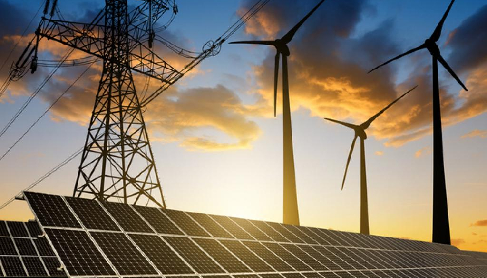Pakistan Businesses Forum (PBF) has demanded from the Power Division to notify the revised tariff of Rs 13 per unit on tube wells in the preview of recent announced Prime Minister Agriculture package, adding yet notification in this regard has not been issued and relief is not being passed towards the farmers from the Discos
PBF Vice President/ CEO Ahmad Jawad said Economic Coordination Committee (ECC) of the cabinet on Monday approved ‘Prime Minister’s agriculture package, with little impact on the budget, but deferred a decision on providing subsidised electricity to tube-wells due to its nearly Rs180 billion subsidy impact, which is a change of 180 degree to what the prime minister announced in his public address last month.
However, he stated it was a good initiative by the incumbent government to announce a massive relief package for farmers who are considered as the backbone of the country. As per the announcement loans worth Rs1800 billion will be disbursed to revamp the agriculture sector.
He said that subsidized loans worth Rs5 billion will be distributed among flood-hit farmers, who do not own agricultural land, adding that small loans will also be written-off in the flood affected areas.
Similarly, Rs 10 billion has been set aside for small and medium enterprises in agriculture sector under the relief package that has also allowed the import of used tractors for five years. He said that the price of DAP per bag had been reduced by Rs2500. He said it is also awaited that the fertiliser companies notify this countrywide.
PBF official also said fixed power rate of tube-wells, which was an old demand of farming community, had been approved and the prime minister had announced that Rs 13 per unit will be charged in order to reduce the input cost. However, this decision is yet to be implemented despite passage of two weeks, and now suddenly ECC set of the farmer community.
Ahmad Jawad also demanded a transparent way may be announced too for implementation of the package across the country including interest-free loans to install solar system for tube-wells which will greatly help small farmers.
He said burning of agriculture waste is contribution to smog. It is high time that the economic value of crop residuals is to be realised. The ratio of straw to paddy ranges from 0.7-1.4 percent depending on the variety and crop growth. Thus, on average, Pakistan produces around 14 million tonnes of biomass from rice crops. But, unfortunately, its significant chunk is burnt, which can be used as raw material in the paper and cardboard industry or as biomass fuels in houses and factories.
Gleaning lessons from the experience and success stories of China and India, the government of Pakistan should also opt for setting up biomass plants under public-private partnership to offer renewable biomass fuels as a substitute for fossil fuel, he added.
We must understand that a sustainable growth of the agriculture sector is vital for ensuring food security and rural development in the country. It is a major contributor to the employment and foreign exchange earnings. Additionally, it also provides industrial raw material; hence, growth in this sector obviously has multiple linkages to overall economy.





